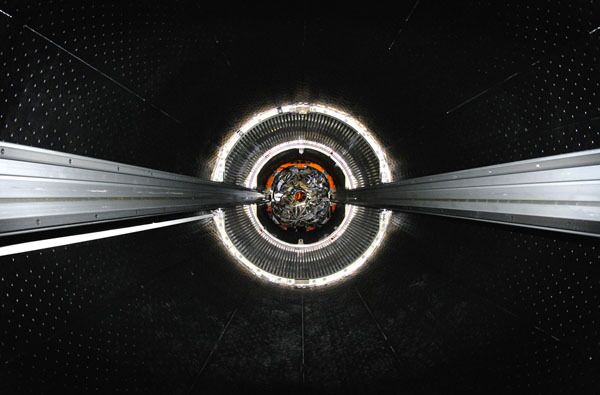The Large Hadron Collider (LHC) has set a new world record for beam intensity by colliding its proton beams with the highest luminosity ever achieved by similar devices, the European Organization for Nuclear Research (CERN) said on its website.
Beam intensity is measured in luminosity - the higher the luminosity, the more particles are likely to collide.
The record intensity was reached around midnight on April 22. The previous world record was set by the Tevatron collider at the U.S. Fermi National Accelerator Laboratory in 2010.
"Beam intensity is key to the success of the LHC, so this is a very important step," said CERN Director General Rolf Heuer. "Higher intensity means more data, and more data means greater discovery potential."
The current LHC run is scheduled to continue to the end of 2012. The researchers at CERN are hoping to collect enough data during this period to prove or disprove the existence of the elusive Higgs particle.
The Higgs boson, nicknamed the "God particle," was hypothesized in the 1960s to explain how particles acquire mass. Discovering the particle could explain how matter appeared in the split-second after the Big Bang.
The LHC, located 100 meters under the French-Swiss border with a circumference of 27 km, enables scientists to shoot subatomic particles round an accelerator ring at almost the speed of light, channeled by powerful fields produced by superconducting magnets.
The $5.6 billion international LHC project has involved more than 2,000 physicists from hundreds of universities and laboratories in 34 countries since 1984. Over 700 Russian physicists have taken part in LHC experiments.
MOSCOW, April 23 (RIA Novosti)




